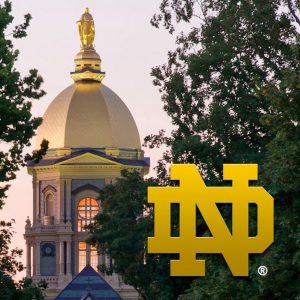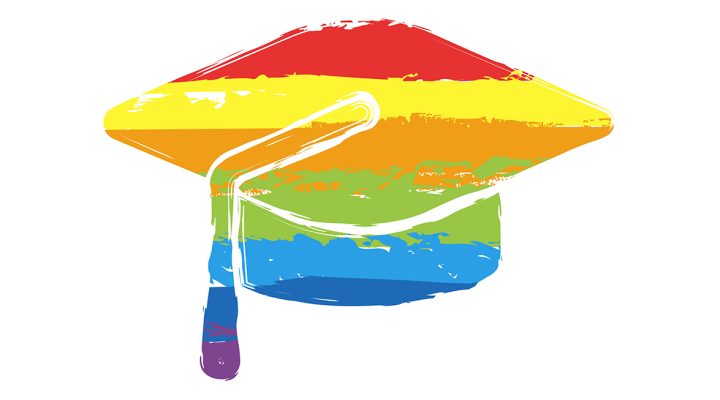Although this time it’s Samford University in the news for discrimination against the LGBTQ community, walking the line between religious heritage and academic aspirations is nothing new for faith-based schools.
Last year, it was Baylor University making headlines as it was cited in a class-action lawsuit challenging federal funding that goes to faith-based schools awarded exemptions to federal anti-discrimination policies.
Yet this year, Baylor achieved its long-term goal of being named a Research 1 university by the Carnegie Classification of Institutions of Higher Education — a highly coveted ranking that places the Waco, Texas, school among the nation’s elite universities.
Carnegie lists 137 schools in its R1 category, of which only 37 are private schools like Baylor. Baylor is the only school in the R1 category with an explicit and primary identity as a Protestant faith-based institution.
While Baylor operates at a level most other Baptist-affiliated universities could not match, many other Baptist and faith-based schools seek national recognition at their own levels. And in most cases, they navigate the challenge of achieving academic recognition while maintaining restrictive student codes of conduct, often including outright bans on same-sex dating and extramarital sex.
Is it possible to be a top-tier Christian university and intentionally exclude or mistreat LGBTQ students?
As I pondered the question, other questions came to mind:
- Why is social transformation so difficult to achieve?
- Why are relations of power so intractable and enduring, even in the face of changing ethical values in the culture?
- How did we become invested in the social norms of evangelical faith?
Social forms
Social forms — family, school, nation, heterosexuality — are effects of repetition. As Judith Butler suggests, it is through the repetition of norms that worlds materialize. Such norms become acceptable only through the concealment of the work of this repetition.
“It is through the repetition of norms that worlds materialize.”
Baylor’s current struggle with how to treat LGBTQ students — wanting to welcome all students while also wanting to appease more conservative pastors and donors — mirrors that of many universities. The “norms” were in place long before the current debate started. The hidden power structures that demean and dehumanize gay students didn’t appear as a kneejerk reaction. They have been there hiding in the rules, written and unwritten, from the beginning.
Many faith-based schools attempt to walk the razor’s edge between a large populist contingency opposed to the LGBTQ community and a larger community of LGBTQ supporters. “Walking the razor’s edge” is an old trope for being in a state of precarity — a dangerous situation.
Many mainline denominational schools are not experiencing the culture war that plays out at Baylor and Samford and other Baptist schools.
By the numbers
Sociologist Jonathan Coley, a 2010 Samford graduate, is conducting a real-time, exhaustive study of LGBTQ presence among Christian colleges in the United States. Among those 652 schools, 62% now include “sexual orientation” in their nondiscrimination policies (and lack any otherwise discriminatory policies toward lesbian, gay and bisexual students). That’ up 7 points from 55% in 2013.
23% of Christian colleges and universities have general handbook bans on “homosexuality,” “homosexual acts,” “homosexual behavior,” LGBTQ identification, or something similar.
In contrast, Coley says, 23% of Christian colleges and universities have general handbook bans on “homosexuality,” “homosexual acts,” “homosexual behavior,” LGBTQ identification, or something similar. An additional 5% of Christian colleges and universities have more specific bans on “same-sex marriage.”
All told, more than 28% of these faith-based schools are openly discriminatory in some way. In comparison, 31% of schools had discriminatory policies of some kind back in 2013, Coley reports.
More emotional than biblical
No matter how loudly the preachers scream, the issue surrounding the LGBTQ community is not as much biblical as emotional. The politics of emotion have more to do with the issue than any claim that this is “biblical Christianity.”

Jonathan Coley
Coley, in his book Gay on God’s Campus, notes: “Although all Christian colleges and universities operate in this new historical terrain (gay rights), some Christian colleges choose to recognize LGBT student groups and approve inclusive nondiscrimination while others resist them. Why?”
I believe the answer lies in the emotions.
The issue of gay sexuality “runneth over” with emotion. At first glance, the mistreatment of LGBTQ students, faculty or staff doesn’t seem to have anything to do with the process of becoming a Tier 1 research university. But there’s more to this subject than meets the eye.
From a rhetorical perspective, I have identified three emotional issues that make a faith-based school’s journey to top-tier academic status complicated.
Stickiness
The concept of stickiness has to do with how ideas, prejudices and opinions deepen over time into hard-core categories. For example, the idea that being gay is a sin sticks to cultures, Christian communities and humanity like Gorilla Glue.
Stickiness adheres over centuries. Issues of stickiness often have a long historical trajectory.
There’s the stickiness of the old social construct that being gay is bad. There is the sense of “getting stuck” in the past.
William V. Trollinger Jr. says, “These schools are, as you say, walking the line: They know that donors and parents want them to hold firm, but they know their students and their reputations in the larger academic community are on the line. And Baylor is a particularly egregious example of this tension.”
“Baylor — like other smaller schools — is stuck between two paradigms: an old world that rejects gays and a new world that accepts gays.”
Baylor — like other smaller schools — is stuck between two paradigms: an old world that rejects gays and a new world that accepts gays.
The anti-gay positions of leading Baptist pastors in Texas “sticks” to Baylor. First Baptist Dallas Pastor Robert Jeffress, who has baselessly warned that gay people could begin to molest children, has urged good Christian parents not to send their children to Baylor, lest they be carried into liberalism.
“What they teach (at Baylor) and the underlying philosophy is anti-Christian,” Jeffress said on the Todd Starnes radio show. “And I don’t think any true Christian parent who wants their kids to have a Christian education would allow their child anywhere near Baylor University.”
The Baptist General Convention of Texas opposes any tolerance of same-sex relations, same-sex marriage and transgender identity. Adding fuel to the fire, the BGCT reportedly wants to make changes in its relationship with Baylor. The issue bubbling up around this discontent: gay rights.
A Baylor faculty member explained the current reality: If Baylor is perceived as going “too far” in support of LGBTQ students, the result would alienate some faculty, students, parents, alumni, donors and Texas pastors.
Yet at the same time, the school has been cited as an illustration of discrimination. Baylor is perceived (not wrongly) of being intolerant. The negative perception of intolerance then “sticks” in the minds of the administrators of other universities, which shapes public opinion within the academy. While this seems unfair, there’s also the reality that Baylor will be punished for its perceived intolerance.
“How the mistreatment of gay students ‘sticks’ to Baptist schools like Baylor and Samford, but not to Notre Dame, represents a difficult challenge.”
How the mistreatment of gay students “sticks” to Baptist schools like Baylor and Samford, but not to Notre Dame, represents a difficult challenge. In the Princeton Review ranking of the most anti-LGBTQ schools, Baylor ranks No. 13 while Notre Dame ranks No. 6. Yet Notre Dame beat Baylor to Tier 1 status. Why?
 Notre Dame, a Catholic school, also is part of a larger church that has a stated anti-gay policy. Gay students at Notre Dame complain of prejudice and mistreatment. In a required course for first-year students, one of the assigned readings is “Beloved Friends and Allies: A Pastoral Plan for the Support and Holistic Development of GLBTQ and Heterosexual Students at the University of Notre Dame.” In essence, this is an entire website dedicated to articulating and reminding students that their “sin” of same-sex sexual acts is not welcome here.
Notre Dame, a Catholic school, also is part of a larger church that has a stated anti-gay policy. Gay students at Notre Dame complain of prejudice and mistreatment. In a required course for first-year students, one of the assigned readings is “Beloved Friends and Allies: A Pastoral Plan for the Support and Holistic Development of GLBTQ and Heterosexual Students at the University of Notre Dame.” In essence, this is an entire website dedicated to articulating and reminding students that their “sin” of same-sex sexual acts is not welcome here.
Yet the gay issue doesn’t seem to “stick” to Notre Dame. Perhaps the reality is that Notre Dame doesn’t have to do business in the wild, stormy seas of “Baptist populism.”
Populism
A second ingredient complicating the attempt to attain top-ranked academic status at any Baptist university has to do with the populism in which they were formed and still operate. Populism is a historical fixture among Baptists.
There is a constant war going on between the populists and the more liberal groups over control of institutions. Populism thrives on the rhetorical production of a noble and holy people who view their elitist enemies as evil. This negative populism, fueled by demagogues, has a detrimental effect.
“Populism thrives on the rhetorical production of a noble and holy people who view their elitist enemies as evil.”
Russell Moore, public theologian and now editor in chief at Christianity Today, says, “There are Christians taking all the populist passions and adding a transcendent authority to it.” Many evangelical pastors have decided there is a war for the soul of the American church and have decided they cannot stand on the sidelines.
They aren’t alone. To many evangelicals today, the enemy is no longer secular America, but their fellow Christians, people who hold the same faith but different beliefs. LGBTQ rights is one of the issues where evangelicals have drawn a line in the sand and insisted they can’t compromise.
In his research, Coley also found there’s a divide between non-Southern schools and Southern schools as well as an urban-rural divide. Another important variable deals with individualist religious traditions vs. more sacramental and communal traditions.
“Over 62% of schools without LGBT groups and 72% of schools without nondiscrimination policies are associated with individualist religious traditions,” he reports. These three statistical realities — Southern schools, rural schools, and individualist theological schools — are important breeding grounds of populism.

J. Frank Norris
Again, Baylor serves as an exemplar of the battle between fundamentalism and modernity in one anti-intellectual snit after another. In 1927, J. Frank Norris attacked Baylor over evolution. To Norris, “Baylor looked suspiciously like the University of Chicago,” according to Barry Hankins in God’s Rascal. Also, in 1932 Norris attacked Baylor for inviting activist Kirby Page to be a commencement speaker. Norris accused Page of being a communist and demanded Baylor rescind the speaking invitation. Norris went after Baylor for “harboring an Al Smith club on campus, saying, “They have defiled the oldest and greatest Baptist university.”
“Not everyone believes being recognized as a top-tier academic institution ought to be the goal of a faith-based school.”
Not everyone believes being recognized as a top-tier academic institution ought to be the goal of a faith-based school. Again, turning to Baylor as an example: When former Baylor President Robert Sloan proposed seeking Tier 1 research status, he met with opposition from emotional arguments.
Some alumni believed they were losing their school. And they wanted it back. Being recognized for academics is seen as denying Christian identity and faithfulness.
Shame
A third emotion is shaming. There’s a shame war happening in America. The tension between left- and right-wing versions of shame can feel unbearable.
Baptists have been the previous undisputed masters of shame. Now, a secular, public morality has turned Baptist notions about gays upside down. What once was taken for granted as an abomination to God now receives welcome and affirmation from the public.
“What once was taken for granted as an abomination to God now receives welcome and affirmation from the public.”
Progressive shaming rips away residual structures of degradation. This has provoked a shame response, a refusal to accept culpability. Evangelicals, Baptists in particular, have refused to be shamed. This has intensified opposition to gays. Those who assume and take for granted that the moral high ground belongs to them are unwilling to accept a pedagogy that shames them as homophobic, uncaring and judgmental.
But that train has left the station. The public, civic virtue that accepts all forms of human sexuality will not be diminished by Baptist refusals to accept gays. With the legalization of same-sex marriage coupled with the support of the majority of Americans, mistreatment of gay students takes on the look of a guerrilla movement, a behind-the-lines sort of emotional sabotage.

Baylor University campus
Does this Baptist recalcitrance impact the ability of any Baptist school to achieve and maintain top-tier credentials? In a word, yes.
This has nothing to do with objective criteria. Baylor, for example, excels in faculty hires, faculty development, faculty publications, research and more. Student enrollment is high. Fundraising has been extremely successful. Baylor more than qualifies to be a Tier 1 research school.
What’s ahead?
In university student recruitment and in faculty retention, perception matters. What prospective students and their parents believe about a school shapes their willingness to enroll there. What the reputation of a school does to the resume of a faculty member matters too.
There’s no escaping the politics of emotion: Stickiness, negative anti-intellectual populism and shaming are powerful streams of affects.
Ultimately, the historical mistreatment of LGBTQ students needs a resolution. And here, once again, Baylor offers a potential path forward. As Baylor once declared independence from the Southern Baptists, the university now faces an opportunity to live into that freedom.
Samford appears to have made its choice, and it likely will both lose and gain students because of that choice. It also will lose and have to hire faculty because of its choice.
Back in Waco, Baylor has much to lose by giving in to the outside pressure of populist Baptists. A policy of intolerance may be enough in the public imagination to wreck Baylor’s chances at living into its Tier 1 status.
Rodney W. Kennedy is a pastor in New York state and serves as a preaching instructor at Palmer Theological Seminary. He is the author of nine books, including the newly released The Immaculate Mistake, about how evangelical Christians gave birth to Donald Trump.
Related articles:
100 clergy who are Samford grads urge president to reverse exclusionary policy
Baylor walks the line on LGBTQ student group as critics pounce from the right | Analysis by Mark Wingfield
Baylor joins the nation’s academic elite as a Research 1 university


